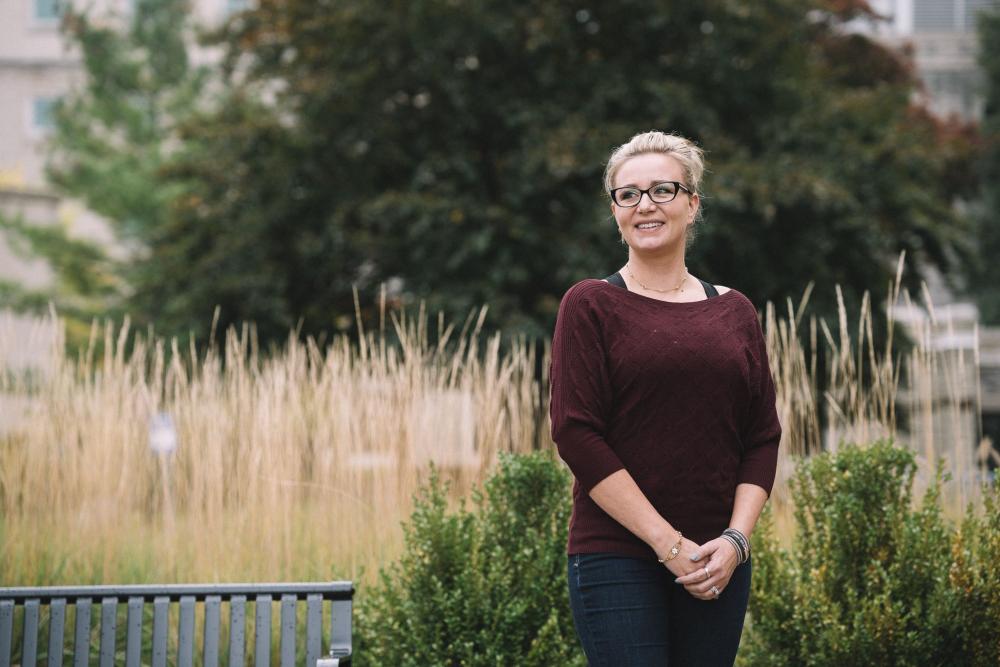
For Taryn Armstrong, sound wasn’t just a sense, it was a tether to life itself—a tether she feared she had lost forever. Over a decade ago, while immersed in her role as an Educational Assistant, Taryn experienced a sudden and unsettling change in her hearing. It was as if she were submerged under water.
“Something’s wrong,” she said to her colleague.
Symptoms flared up more often and worsened. She developed tinnitus. Her world would plunge into silence and spin violently around, making it nearly impossible to concentrate.
Taryn knew she needed help but being an otherwise healthy woman in her 20s, and with symptoms affecting both ears, it made her problem difficult to diagnose. Her family doctor was stumped; the specialist she was referred to was also perplexed. Not knowing was frustrating, but worse, Taryn felt she was being robbed of experiences—robbed of life.
“I had to go down to part time at the school because of the flare-ups,” she confides. “Then I had to stop altogether.”
Social outings and events proved challenging as Taryn had to gauge every situation in relation to potential triggers. Were there going to be many people? Competing noises left her disoriented. Were there going to be high ceilings? Echoes played hell on her tinnitus. Eventually, she started withdrawing from these aspects of life as well.
However, after about two years of tests and head-scratching, Taryn was referred to renowned otologist-neurotologist, Dr. Sumit Agrawal, at London Health Sciences Centre (LHSC). An expert in the field, Dr. Agrawal diagnosed Taryn with Meniere’s disease, a disorder of the inner ear characterized by severe dizziness, ringing in the ears and hearing loss.
“Meeting Dr. Agrawal and getting a diagnosis was the turning point,” Taryn says.
Armed with an answer, she could begin moving forward. But while hearing aids helped initially, Taryn soon fell completely deaf in her right ear. Now married with three young children, the knowledge she would lose her hearing altogether—to have her kids’ voices taken from her, their cries, their laughs—was heartbreaking.
Then came a glimmer of hope. Dr. Agrawal and his team in the Auditory Biophysics Laboratory had developed new artificial intelligence mapping techniques to fine-tune cochlear implants to a patient’s unique anatomy. Furthermore, they were about to begin a brand-new clinical trial using their algorithm and highly advanced cochlear implants produced by MED-EL, a world-leading hearing implant company. And not only did Taryn qualify for the trial, but she was patient #1—the very first to be enrolled.
Nervous and skeptical, albeit determined, Taryn had the new device implanted in August 2023. With Dr. Agrawal performing her surgery, she felt she was in good hands. The surgery was a resounding success with a quick recovery, but it would take another month before they could turn on the device to learn the result.
Late September 2023. The day of her activation appointment had arrived. After more than 12 years of watching the disease take her life apart piece by piece, Taryn went in perhaps somewhat resigned. They switched the device on, it beeped, and Taryn heard it.
“Getting this implant has been life changing,” Taryn exclaims.
Indeed, her progress has surpassed everyone’s expectations. Taryn has experienced little discomfort and happily reports clear, distinct sound. More than anything, though, it’s given her confidence back. She’s no longer afraid of the next social gathering or walking through a busy parking lot. The life she once had is coming back. It’s a freedom we take for granted, she says, until we find ourselves stripped of it—the freedom of sound.
